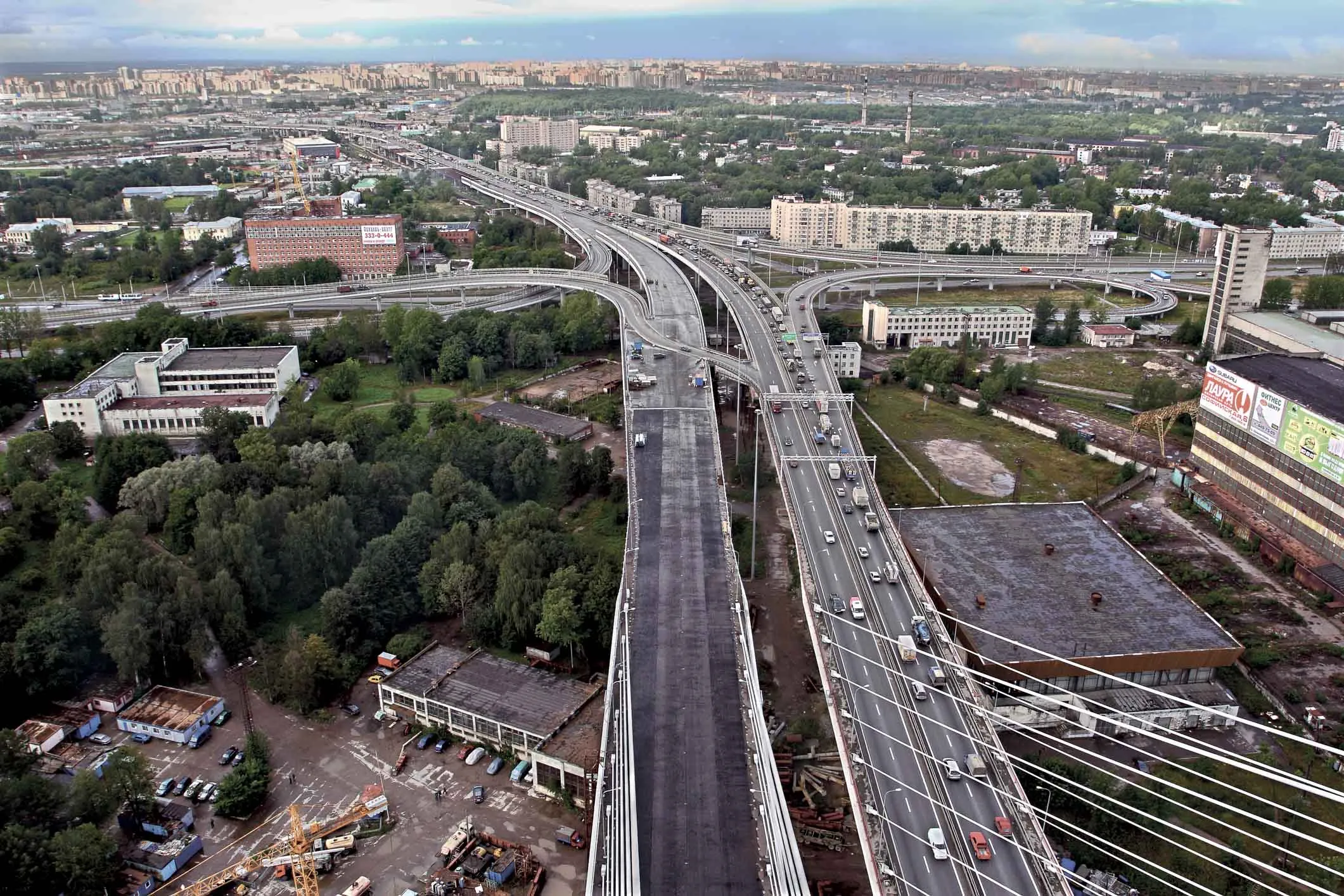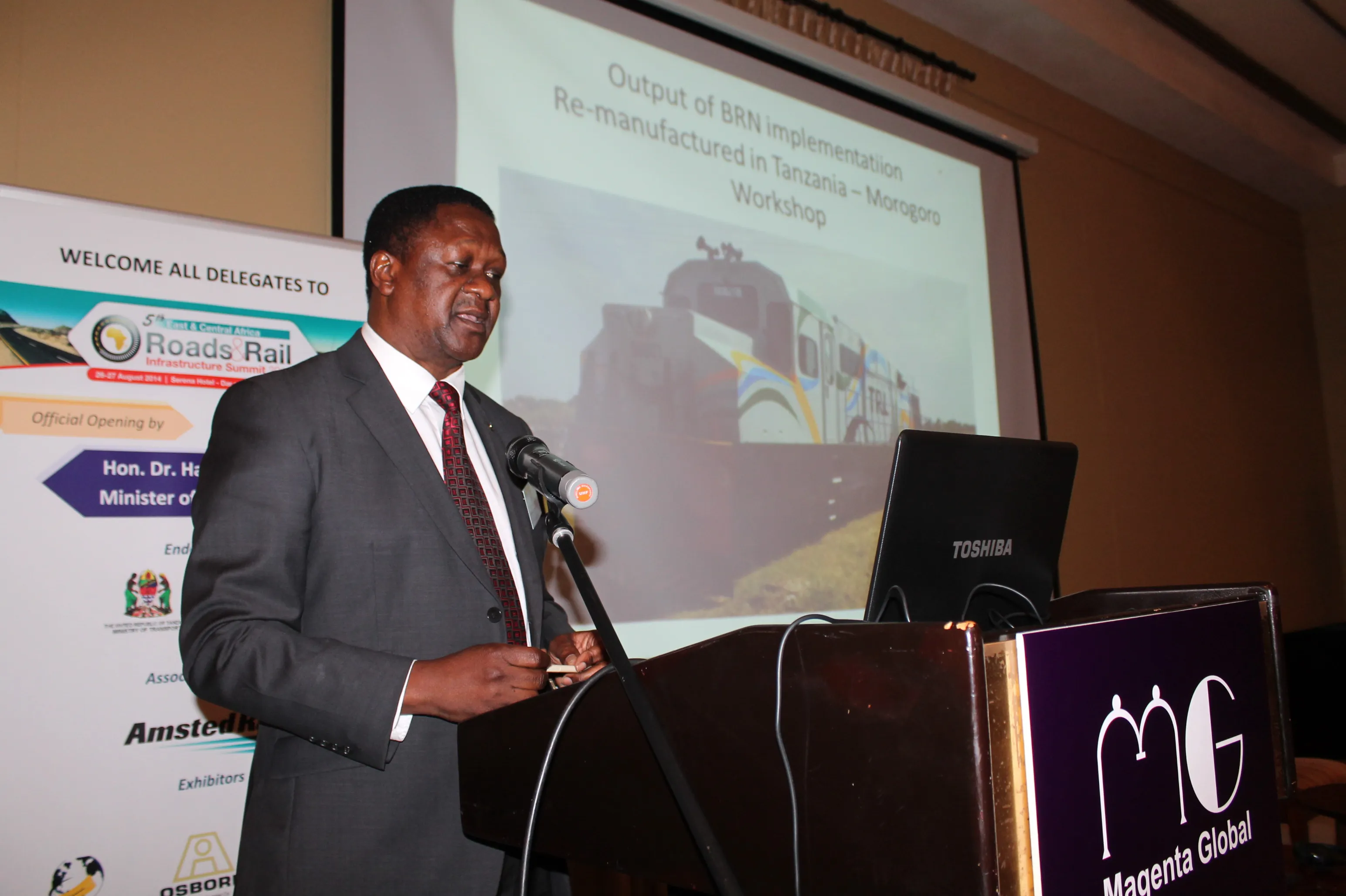Road building will solve the problem of traffic jams in St Petersburg – Eugene Gerden writes
The authorities in Russian city St Petersburg plan to solve the problem of traffic jams in the city during the next few years. The strategy is expected to be achieved through road building and the improvement of transport connections between different districts in the city.
Implementation of these plans will take place as part of the decree 355 "Of the Strategy of St Petersburg Economic and Social Development
June 20, 2016
Read time: 5 mins

Road building will solve the problem of traffic jams in St Petersburg – Eugene Gerden writes
The authorities in Russian city St Petersburg plan to solve the problem of traffic jams in the city during the next few years. The strategy is expected to be achieved through road building and the improvement of transport connections between different districts in the city.
Implementation of these plans will take place as part of the decree 355 "Of the Strategy of St Petersburg Economic and Social Development for the period up to 2030". This was first approved by the St Petersburg Government in May 2014 and was recently updated.
As part of the plan the St Petersburg Government is creating conditions for the re-direction of traffic flow from the centre to the outskirts of the city.
This will face serious difficulties, as the road network of St Petersburg has a complex structure and includes various design elements. In particular it has a radial-ring (similar to Moscow and Paris), as well as rectangular and rectangular-diagonal routes (as in Washington DC and New York).
According to plans by the St Petersburg Government, particular attention will be paid to the building of freeways. Currently the city has only one such route, the St Petersburg Ring Road, an orbital freeway that encircles the city.
At the same time, there is a possibility that the current problem of traffic congestion in the city will be significantly improved by the end of 2016, thanks to the ongoing implementation of at least two large-scale projects.
The first project is the building of the Western High-Speed Diameter, a toll highway that will connect the north and south of the city. The road is currently under construction and is expected to be officially commissioned by the end of the year. This one of the most ambitious projects for the St Petersburg road building industry in the last few years.
The route will pass along the western part of St Petersburg and the Gulf of Finland. It will connect the sea port as well as major transport facilities in the city with the city’s Ring Road and the roads heading to Baltic countries, Nordic states and some Russian regions.
The road is divided into three sections: the southern, central and northern. To date, building of the southern and northern sections of the road has already been completed. It is planned that the new road will be officially launched by August 31st 2016, when building of the central (and last) section of the road is completed.
The volume of investments in the project is RUB 203.7 billion (US$4.5 billion), of which RUB 134 billion were provided from the federal budget and the city’s own budget, while the remaining RUB 70 billion came from private investors.
Meanwhile the second project, the Centre Transport Bypass (CTB), will help deliver a significant reduction in traffic through the historic centre of the city. This freeway will connect the southern and northern areas of the city and bypass its centre. To date, work has commenced on the first stage of the project, while its completion is scheduled for 2017. The CTB project will be a semicircle connected to the Western Speed Diameter route on both sides, and in particular its southern and northern sections.
It will pass through the Obvodny Canal, the longest canal in Saint Petersburg, which with reconstruction and further development will provide a bypass for the historical centre of St Petersburg. In addition to the Obvodny Canal, the new road will pass through several embankments that already act as main roads, as well as Bolsheokhtinsky and Alexander Nevsky bridges via the Neva River.
The project involves a plan for single direction traffic along the embankments, the construction of tunnels around intersections with the main radial urban highways - Old-Peterhof, Moscow and Ligovsky prospects - as well as bridges, linking the southern and northern embankments of the Obvodny Canal.
The overall length of the road is 26km. It will be designed for average vehicle speeds of 40km/h and will feature 10 lanes at its maximum width.
The project is expected to be fully complete by 2018, while it is costing a total of RUB 70 billion ($1.2 billion). Of this, RUB 50 billion was provided by the St Petersburg authorities, with the remaining sum coming from private investors. The current transport situation in St Petersburg remains complex, which is reflected by statistics. The average speed of traffic in the centre of the city during peak periods is estimated at 10-15 km/h, and just 6-10 km/h in the most congested area.
Jams regularly occur on the approaches to 245 of the city’s intersections, around 20% of all intersections in the city.
The current situation with regard to the St Petersburg road network is that it does not meet the city’s needs. It has fallen behind the development plans that were identified for St Petersburg and the St Petersburg region and designed as far back as in 1949 and 1987. This is mainly due to the lack of funds and the growing number of cars in the city.
Among the priority targets for the city’s government will be the construction of new roads that will serve the World Cup 2018, as well new routes bypassing the centre of St Petersburg.
At the same time there are also plans to build a junction of the Pulkovo Highway and Danube Avenue worth RUB 11.6 billion. Building of this new junction should significantly simplify the way to the centre of St Petersburg from Pulkovo airport and to the football stadium, which is located on Krestovsky Island.
The overall volume of investments in the implementation of these plans is estimated at RUB 65 billion ($1 billion).
The authorities in Russian city St Petersburg plan to solve the problem of traffic jams in the city during the next few years. The strategy is expected to be achieved through road building and the improvement of transport connections between different districts in the city.
Implementation of these plans will take place as part of the decree 355 "Of the Strategy of St Petersburg Economic and Social Development for the period up to 2030". This was first approved by the St Petersburg Government in May 2014 and was recently updated.
As part of the plan the St Petersburg Government is creating conditions for the re-direction of traffic flow from the centre to the outskirts of the city.
This will face serious difficulties, as the road network of St Petersburg has a complex structure and includes various design elements. In particular it has a radial-ring (similar to Moscow and Paris), as well as rectangular and rectangular-diagonal routes (as in Washington DC and New York).
According to plans by the St Petersburg Government, particular attention will be paid to the building of freeways. Currently the city has only one such route, the St Petersburg Ring Road, an orbital freeway that encircles the city.
At the same time, there is a possibility that the current problem of traffic congestion in the city will be significantly improved by the end of 2016, thanks to the ongoing implementation of at least two large-scale projects.
The first project is the building of the Western High-Speed Diameter, a toll highway that will connect the north and south of the city. The road is currently under construction and is expected to be officially commissioned by the end of the year. This one of the most ambitious projects for the St Petersburg road building industry in the last few years.
The route will pass along the western part of St Petersburg and the Gulf of Finland. It will connect the sea port as well as major transport facilities in the city with the city’s Ring Road and the roads heading to Baltic countries, Nordic states and some Russian regions.
The road is divided into three sections: the southern, central and northern. To date, building of the southern and northern sections of the road has already been completed. It is planned that the new road will be officially launched by August 31st 2016, when building of the central (and last) section of the road is completed.
The volume of investments in the project is RUB 203.7 billion (US$4.5 billion), of which RUB 134 billion were provided from the federal budget and the city’s own budget, while the remaining RUB 70 billion came from private investors.
Meanwhile the second project, the Centre Transport Bypass (CTB), will help deliver a significant reduction in traffic through the historic centre of the city. This freeway will connect the southern and northern areas of the city and bypass its centre. To date, work has commenced on the first stage of the project, while its completion is scheduled for 2017. The CTB project will be a semicircle connected to the Western Speed Diameter route on both sides, and in particular its southern and northern sections.
It will pass through the Obvodny Canal, the longest canal in Saint Petersburg, which with reconstruction and further development will provide a bypass for the historical centre of St Petersburg. In addition to the Obvodny Canal, the new road will pass through several embankments that already act as main roads, as well as Bolsheokhtinsky and Alexander Nevsky bridges via the Neva River.
The project involves a plan for single direction traffic along the embankments, the construction of tunnels around intersections with the main radial urban highways - Old-Peterhof, Moscow and Ligovsky prospects - as well as bridges, linking the southern and northern embankments of the Obvodny Canal.
The overall length of the road is 26km. It will be designed for average vehicle speeds of 40km/h and will feature 10 lanes at its maximum width.
The project is expected to be fully complete by 2018, while it is costing a total of RUB 70 billion ($1.2 billion). Of this, RUB 50 billion was provided by the St Petersburg authorities, with the remaining sum coming from private investors. The current transport situation in St Petersburg remains complex, which is reflected by statistics. The average speed of traffic in the centre of the city during peak periods is estimated at 10-15 km/h, and just 6-10 km/h in the most congested area.
Jams regularly occur on the approaches to 245 of the city’s intersections, around 20% of all intersections in the city.
The current situation with regard to the St Petersburg road network is that it does not meet the city’s needs. It has fallen behind the development plans that were identified for St Petersburg and the St Petersburg region and designed as far back as in 1949 and 1987. This is mainly due to the lack of funds and the growing number of cars in the city.
Among the priority targets for the city’s government will be the construction of new roads that will serve the World Cup 2018, as well new routes bypassing the centre of St Petersburg.
At the same time there are also plans to build a junction of the Pulkovo Highway and Danube Avenue worth RUB 11.6 billion. Building of this new junction should significantly simplify the way to the centre of St Petersburg from Pulkovo airport and to the football stadium, which is located on Krestovsky Island.
The overall volume of investments in the implementation of these plans is estimated at RUB 65 billion ($1 billion).







